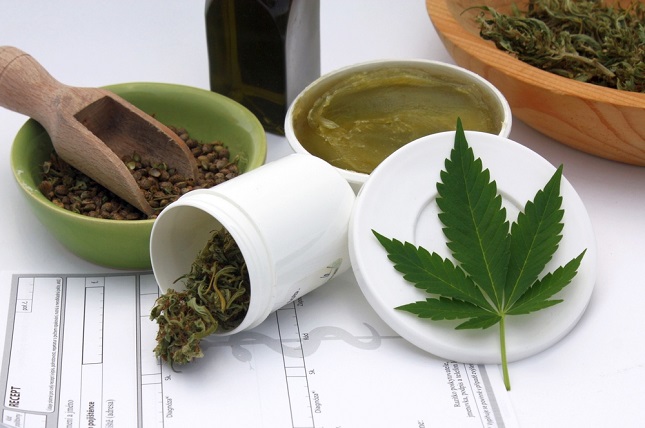
U.S, April Amid drug shortages, could cannabis lessen the burden?
If COVID-19 has made anything clear, it’s the precarious position of many vital global supply chains. One of the most alarming issues is the risk to pharmaceutical production networks. Last month China’s manufacturing and production ground to a halt as the country went into lockdown to contain the virus. This shutdown had an immediate impact on industries around the world, including pharmaceutical ingredients.
Although it may come as a surprise, American drugs aren’t always American-made products. When they are compounded in the US, a significant portion of their active pharmaceutical ingredients (APIs) still come from overseas and mainly from China. A slowdown in China threatens to reduce or cease production on US soil.
The intensely local nature of the cannabis sector is a fascinating comparison to the global pharmaceutical industry. Considering patients are increasingly replacing pharmaceuticals with plant-based alternatives, could cannabis solve the COVID-19-caused global shortages?
GLOBAL API MANUFACTURING IN CRISIS AMID COVID-19
According to an investigative piece by Vox, roughly 60 percent of factories producing drugs for the American market are located outside the US. Alarmingly, 90 percent of these factories outside the US manufacture APIs. The Vox article makes it clear that these numbers only speak to the number of factories, and there is a lack of transparency about specific quantities and types of ingredients. With no hard numbers, it makes the impact of a global economic slowdown on drug production hard to quantify.
The good news is that in China, there are signs that production may be ramping back up in certain regions. But, the COVID-19 crisis is quickly spreading to other vital areas along the global supply chain, including India.
According to some reports, India supplies 40 to 50 percent of American generic drugs. Furthermore, they import a majority of their APIs from China, meaning their API manufacturing has already taken a recent hit from Chinese production shortages. With India currently under a 21-day, government-implemented countrywide lockdown, there is a real risk to drug supply in the rest of the world.
In the US, it’s a recurring political theme to push for a return of American manufacturing. Still, the focus has been on the automotive and electronics industries. As the COVID-19 crisis is making abundantly clear, other sectors may deserve more attention.
THE CANNABIS SUPPLY CHAIN DURING COVID-19
Standing in contrast to the disrupted international pharmaceutical supply chain is the almost entirely regional cannabis supply chain. In the US, the cannabis sector is unique in its intensely local system. Because cannabis remains federally regulated under the Controlled Substances Act (CSA), it’s still illegal (technically) to move the plant across state borders, even if both states have legal markets. This federal restriction has meant that cannabis has remained mostly untouched by the impacts of COVID-19 felt along other supply chains. Cultivation, processing, and sales all happen at an intensely regional level.
As the COVID-19-related shutdowns spread through the US, several states have deemed dispensaries “essential services.” Interestingly, the demand is higher than ever due to consumer panic buying. Most reports also indicate that producers are still in operation, as they are not affected by the shutdowns of public facilities. In Washington, as an example, dispensaries are open, and there are no suggestions that regulators will shut down production any time soon. The same is true in Canada.
It’s worth discussing the delicate nature of many new cannabis markets. In some states, a nascent industry is already suffering from shortages — Illinois is a prime example. The delicate balance between supply and demand hasn’t settled yet in these new markets. Canada is another example of how it takes months, if not years, to determine appropriate production levels. In new markets, the cannabis supply is fragile even in the best of times.
THE TIME FOR LEGALIZATION IS NOW, YET LIKELY NOT A POSSIBILITY
The uniquely localized nature of cannabis is striking in the time of COVID-19. Some vape cartridges and packaging may see disruptions from China, but producers are still pumping out flower to meet the unprecedented demand.
The pharmaceutical industry stands in contrast, as several essential countries are in lockdown for the foreseeable future. The full extent of these shutdowns is not yet known, but there are possible severe ramifications in the US and elsewhere.
The highly localized nature of the supply chain has insulated this sector from disruptions abroad. As COVID-19 has made evident, there are few other industries in the same safe position these days. With cannabis a suitable alternative for many over-the-counter and prescription drugs, the time is now to legalize, to facilitate access for patients.
Unfortunately, legalization efforts at the federal level will also see a slowdown thanks to the COVID-19 crisis. Even before the pandemic hit, cannabis legislation was struggling through the different houses of government.
A prime example is the Secure and Fair Enforcement (SAFE) Banking Act, which is the least controversial out of all the attempts at the federal level. In recent months, its moment has begun to fizzle. Banking Committee Chairman Mike Crapo (R-ID), the man responsible for moving this bill forward in the Republican-held Senate, issued a letter outlining several concerns. He has threatened to release his own bill to correct the issues of the SAFE Banking Act.
With COVID-19 now a looming and imminent concern for the nation, most other legislation will likely fall to the wayside — especially bills like the SAFE Act, which seemed to be floundering already.
Still, when federal legislation on cannabis does come around, the COVID-19 crisis is a strong argument in its favor. Cannabis, already deemed an essential service in many states, is capable of weathering the storm in ways most other industries cannot. It’s a plausible solution for many patients, and creating legal access channels is an ethical choice in times of crisis.






